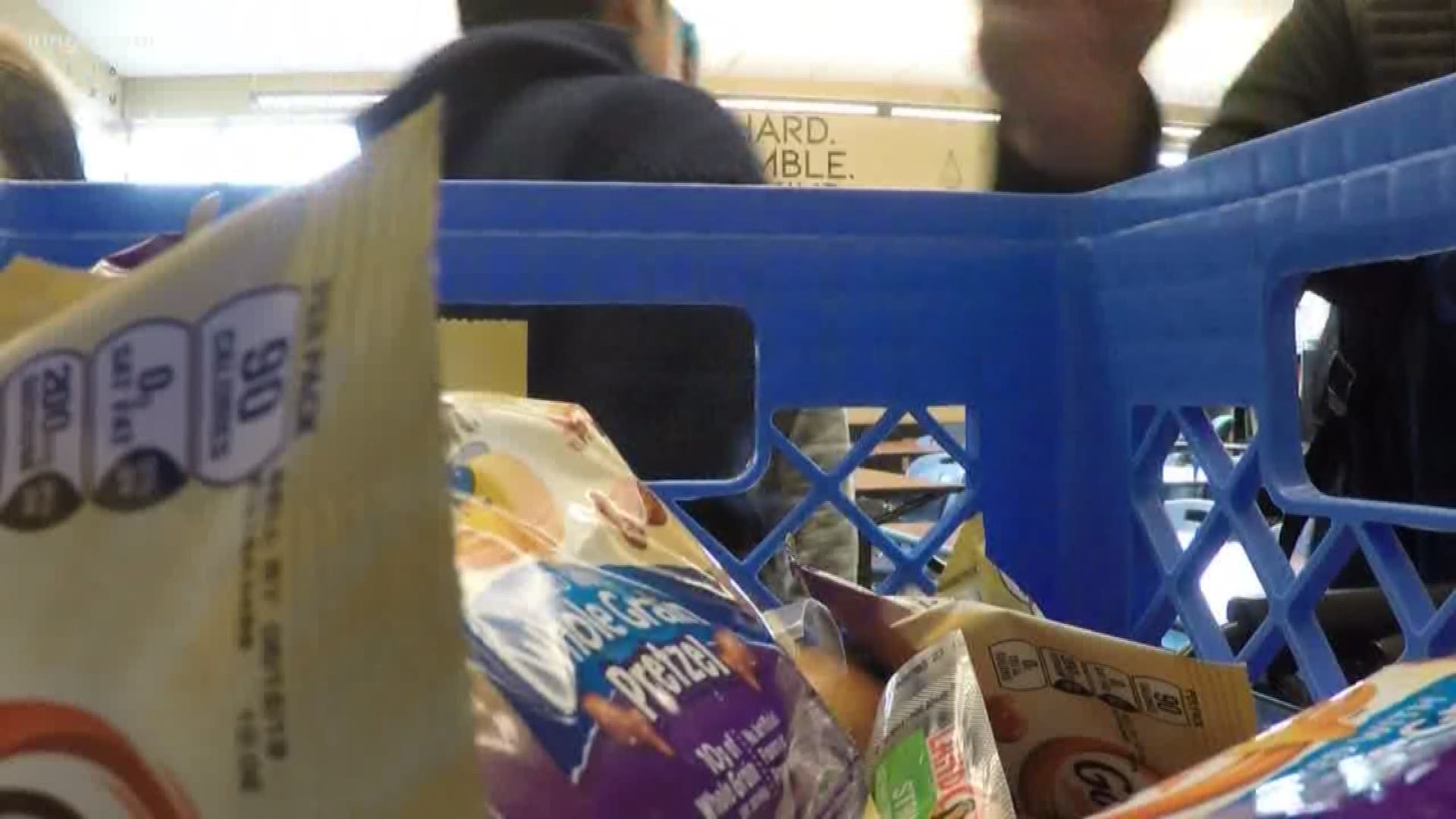BELLINGHAM, Wash. — Students at Shuksan Middle School in Bellingham are getting nutrition as their first lesson of the day. Kids can now eat breakfast in their classroom every morning.
Rita Eisa used to skip breakfast to get to class on time, but not anymore.
"Usually in the morning I can't get to breakfast because I have to get on the bus for school," Rita said. "Now I eat it almost every day."
The program serves two purposes.
The first is to feed more hungry kids. The second is to eliminate the stigma associated with free breakfast before school.
Typically, low-income students come to school early to eat a free breakfast in the cafeteria. Studies show those children often end up skipping breakfast because they feel embarrassed.
"Nobody should have to feel like they have to go somewhere separate just so they can eat breakfast when they come to school," seventh-grader Liv Hampton said.
The menu isn't lavish. A typical breakfast consists of fruit, milk, granola bars, cheese sticks, and crackers.
Several elementary schools have been taking part in the program, but Shuksan is the first middle school to participate.
So far numbers are appetizing for administrators.
Only 16% of the low-income students at Shuksan were taking advantage of the traditional free breakfast. Now that breakfast available to every student in the classroom, that number has soared to nearly 80%.
Jessica Sankey runs the wellness program for Bellingham schools. She recalled a recent conversation between Shuskan's principal and a student.
"[The principal] asked how his day was on a scale of one to 10, and he said an eight. She was surprised and asked what had changed for the better and he just told her he wasn't hungry anymore," Sankey said.
Next year a new state law will mandate this program in the nearly 400 Washington schools where more than 70% of the students are low-income.
Math teacher Tyler Dockins said he already sees the program working.
"We're not seeing those kids as lethargic. They have more energy. Learning is hard work. You need a lot of fuel to support that,” Dockins said.
The breakfast program is funded through federal dollars with small state grants for additional expenses.

